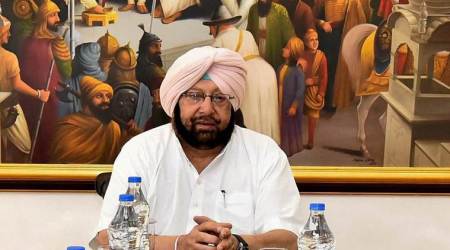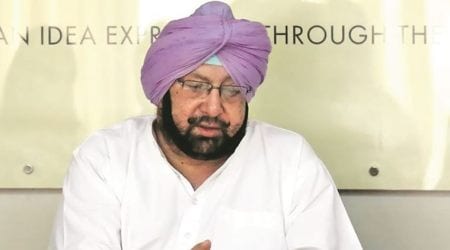 Chief Minister Amarinder Singh (File)
Chief Minister Amarinder Singh (File)
With no resources to extend an already promised farm loan waiver, the Punjab government is now desperately looking at the Union government for relaxing the borrowing limit under Fiscal Responsibility and Budget Management (FRBM) Act norms.
With RBI asking the state to arrange funds from “its own resources/borrowings”, Chief Minister Amarinder Singh has now sought a meeting with Prime Minister Narendra Modi on August 8.
Though the state had set aside Rs 1500 crore for the waiver in the annual budget for current fiscal, it needs to pay off Rs 3600 crore to the cooperative banks, besides the first instalment of loan waiver of Rs 6,000 crore pertaining to
the national and commercial banks.
The RBI expressed its inability to help Punjab arrange funds for the farm loan waiver during a meeting last week.
The RBI representatives in Mumbai are learnt to have told a high-profile delegation of the Punjab government last Thursday that the “state would have to arrange funds from its own resources/borrowings for the proposed debt
relief scheme.”
The delegations comprised Finance Minister Manpreet Badal, Chief Principal Secretary Suresh Kumar, Chief Secretary Karan Avtar Singh, Chairman of Cooperative Bank, Dr SK Batish.
For the meeting with Prime Minister Narendra Modi, Punjab government is preparing a case to help the chief minister seek relaxation of norms under the FRBM Act.
A functionary of the government said unless the norms were relaxed, it would not be possible for the government to extend this support to farmers with state’s own resources.
The expected gap in revenues and expenditure in Financial Year 2017-18 had been projected at Rs 10,273 crore. Under the provisions of FRBM Act, 2003, the state government’s borrowings are restricted to a maximum of 3 per cent of the GSDP, which comes to Rs 12,810 crore.
With restricted borrowings, the state would only be able to cover the revenue gap.
But then the government would have to pay the entire Rs 3600 crore towards the loan given by cooperative banks as NABARD that refinances the cooperative bank, would refinance this amount only in case of repayment of the entire amount.
“Otherwise, the cooperative banks would not have any funds to lend the farmers for the next crop cycle,” said a government functionary.
“Also, we will need to pay the first instalment of Rs 6,000 crore to the national and commercial banks. It remains to be seen how that waiver is settled with the banks. It could be in any number of installments,” he added.
Sources said the government was making a case that if the Centre could relax the borrowing limit at the time of converting the CCL gap of Rs 31,000 crore into a loan, it could help the state now to provide a much needed relief to the farmers.







